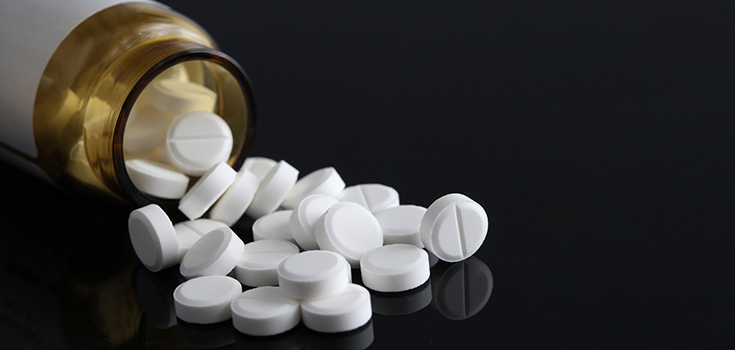OTC Pain Meds Interfere with Anti-Depressants

An estimated 11 percent of Americans over the age of 12 takes an antidepressant. They represent one of the most popular classes of drugs in this country, and their popularity is a fairly recent phenomena. According to the CDC, antidepressant use has jumped a whopping 400% over the past two decades. Depression is a serious condition—ask anyone who has battled it. But so are the dangers of pharmaceutical solutions, and a recent study shows those antidepressants may not be able to provide as many benefits as one would think, particularly when used in conjunction with over-the-counter pain medicine.
Non-steroidal anti-inflammatory drugs (NSAIDs) are those pills people commonly pop for headaches, mild arthritis, or other everyday pains. They include things like aspirin, ibuprofen, and acetaminophen. Similar to anti-depressants like Celexa and Prozac—in a class of drugs known as selective serotonin reuptake inhibitors, or SSRIs,—these NSAIDs are very popular.
According to researchers, however, taking NSAIDs for pain could interfere with the effectiveness of SSRIs.
“It appears there’s a very strong antagonistic relationship between NSAIDs and SSRIs,” said study author Jennifer Warner-Schmidt of Rockefeller University in New York. “This may be one reason why the response rate [in patients of SSRIs] is so low.”
In their study, the researchers found these over the counter pain medications to reduce the effectiveness of depression medications by around 10%. It isn’t clear from their work, however, if popping an occasional ibuprofen for a headache is as detrimental to the depression-drug effectiveness as being on a regular NSAID regimen for chronic pain, as in arthritis.
Interestingly, the researchers entered into the study hypothesizing that the NSAIDs could actually help the anti-depressants work since inflammation is thought to cause or worsen depression in some people. They were proven wrong, however, both by mice and then by human study subjects.
While doctors interviewed about the findings said they would be cautious in telling their patients to stop a NSAID regimen in favor of better-working anti-depressants, perhaps these patients would benefit from several holistic remedies rather than the pill cocktail that is canceling itself out and potentially leading to numerous side effects.
There are numerous natural treatments for both pain and depression. Such natural treatments are especially attractive when you consider anti-depressants could actually be worsening your depressive symptoms.
